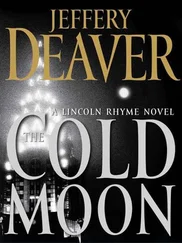They never explained the complexities of their love to us children. I always believed they were waiting until we were older, though I doubt we would ever have been old enough. The passion of an older gentleman and a lady he met through less than proper circumstances surely embarrassed them.
I developed big eyes and ears. I spied as Uncle Thanh and my mother spoke in tense whispers of things they did not wish us children to hear. Their secret discussions usually concerned Comrade Vo.
“Minh’s wife complains about Vo,” my mother said. “He pays nothing for his food and expects his laundry done. Quoc the tailor mends trousers for Comrade Vo. He did not pay Quoc. Vo told him that in an ideal proletarian society, there is no money and everybody is equally wealthy. What does that mean? I am afraid that Vo will continue to take cigarettes from you.”
Uncle Thanh nodded. “If I refuse, he will have me arrested for being against the Revolution and harboring greedy imperialistic tendencies.”
“Does he have any word on Pham?”
“He says I must be patient.”
“Is there nothing we can do?”
Uncle Thanh shook his head. “There will always be a Comrade Vo. There have always been governments that tell us what to do and what not to do, to tell us what to believe and how to behave. We are small people who must bend with the slightest breeze. That is the essence of small people. We can no more change these events than we can change the direction of the wind.”
My mother said, “It is a foul-smelling wind.”
There were other times when the discussions were arguments, a glassy-eyed, stammered code I was unable to break, other than that Uncle Thanh was dead set against and my mother was for, as there was no choice. It was too sad to watch. I could not guess then what this terrible thing was, though there was no question in my mind that Vo was the cause.
I began skipping school regularly, accompanying Uncle Thanh nearly every day. That was our secret from Mother. I promised to do my arithmetic tables and grammar, and he allowed me to pursue my practical education on the street. Comrade Vo was taking from us three packages of cigarettes per day. Mail service was erratic and customs officials at the airport stole with both hands. Shipments from Thi were unpredictable.
I took the packs that Thanh did not sell and Vo did not steal. I made them multiply. I traded them for cans of gasoline, which I traded for bottles of Johnnie Walker Red Label (their USMACV PX seals intact), which I traded for tins of cooking oil (unopened, with the USAID clasped-hands label), which I traded for bags of Thai rice, which I traded for American cigarettes. On an average day I returned with a ratio of two packs to one, partially compensating for Vo’s thievery, but that did not make the cadre any easier for us to stomach.
On a soggy night soaked by the spring monsoon, my mother closed the shutters. One by one, our neighbors crept in, creating puddles where they stepped. I was puzzled about who called this dangerous meeting. It may have been my mother. Her eyes had been red throughout the day. It may have been Uncle Thanh. Say anything to him lately and you would have to say it again. It was as if his body was on Earth and his thoughts on Mars.
Actually, any of our guests might have called the meeting. Everybody was angry. Everybody had a story about Vo.
Minh, an office clerk, started. “Comrade Vo has not paid us a single dong. He lives in our home like it is his and he eats more than two men. I hint at payment and he repeats the stupid things he says at his meetings we are afraid not to attend. Revolutionary joy is sufficient payment and that we all must endure sacrifice, and so forth. He endlessly reminds me that I was a clerk for the Thieu puppet regime. Then he says that my cooperative attitude may earn me a promotion at my present job. He threatens and promises in a single breath.”
Quoc the tailor said, “I repair his clothes and I am sewing him a new shirt. He said I incompetently repaired a seam. A sleeve tore while he was at an important Party conference. He lost face. The sleeve came apart because Comrade Vo is getting fat from Minh’s food. He knows that before Liberation I altered South Vietnamese Army uniforms and sewed insignia on them. He promises to have my cloth ration increased, but as yet he has not.”
Phu, a mechanic, was next. “When Saigon was choked with cars and motorbikes, I repaired them and sold parts. Comrade Vo says I was a running-dog lackey of the bourgeois. My customers today are bicyclists. I gave Vo tires for his bicycle. His tires were worn out and he had to get around for vital Party business. He lied. I saw his bicycle. The tires are good. He sold my tires on the black market. You must stand in line for hours to buy a tire at a government store, if they have any in stock at all. Comrade Vo says he knows somebody who can supply me all the tires I want. I have not seen this ‘somebody.’”
Lan the barber spoke. Nguyen the fishmonger spoke. Canh, a cyclo driver, spoke. Their stories were different but the same. Comrade Vo had his hair cut free, ate free fish, and rode for free in a pedicab.
“You have the most to lose, Thanh,” Quoc said. “Vo has power over your son. Can he really have Pham released from the camp?”
“I have no idea,” Uncle Thanh said bitterly.
Minh said angrily, “Having him in my home is unbearable. We must do something!”
“We cannot,” Canh answered. “Vo is but a strand of hair on the monster.”
“What if we pluck the hair?” said Thanh. “Rip it out by the roots.”
“If we remove the hair, it may grow back even coarser. That is stupid talk that will get us jailed or even killed,” my mother blurted. “Will somebody please talk to Thanh? He will not listen to me when I tell him that he cannot touch Vo.”
The room fell silent. It was then that I knew my mother had arranged this gathering. My thoughts were drifting to the incineration of our village and our ancestors. Either my nose filled with the hot stench of smoke my mind generated or with dust. I sneezed.
They dragged me from under the bed where I was hiding. My sandal had gotten hooked around a twine-wrapped cardboard box, and it came out with me. I was chastised by Uncle Thanh for not being elsewhere with the other children and gently cuffed by my mother. Everybody had a good laugh at my expense and the tension diminished.
Then Uncle Thanh undid the twine and lifted the lid. A smile radiated across his face.
“I had forgotten these things Thi did not have room or time to take with her. I could swear I destroyed everything incriminating the day the communists arrived,” he said, removing the contents with loving care, one item at a time.
My mother looked at me oddly, then Uncle Thanh, swiveling her head. “What are you two thinking?”
Thanh was smiling, knowing what I was thinking.
Uncle Thanh and I went right to work on our plan. Other major players were Minh and his family, who got Vo out of Minh’s house on a pretext. Canh and Phu and Nguyen reported Vo’s suspiciously counterrevolutionary behavior to four different revolutionary committees. I was a burglar in reverse, who gave rather than took.
Comrade Vo pleaded his innocence mightily as unhearing soldiers prodded him out of Minh’s house with bayonets. Other soldiers examined the treasonous material as they loaded Vo into a truck.
These were the belongings abandoned by Thi, the belongings found in Vo’s room:
A novel, The Quiet American , by Graham Greene.
A schoolbook devoted to the study of democracy.
A volume of English-language poetry.
The framed photograph of a former American leader.
A Time magazine.
Uncle Thanh and I had carefully cut out the picture of the former American leader from the Time magazine cover and mounted it in a nice brass and glass frame. It was the American president who was forced to leave office—in the manner that the last Americans had fled Saigon in 1975 from the U.S. Embassy rooftop—by helicopter.
Читать дальше












